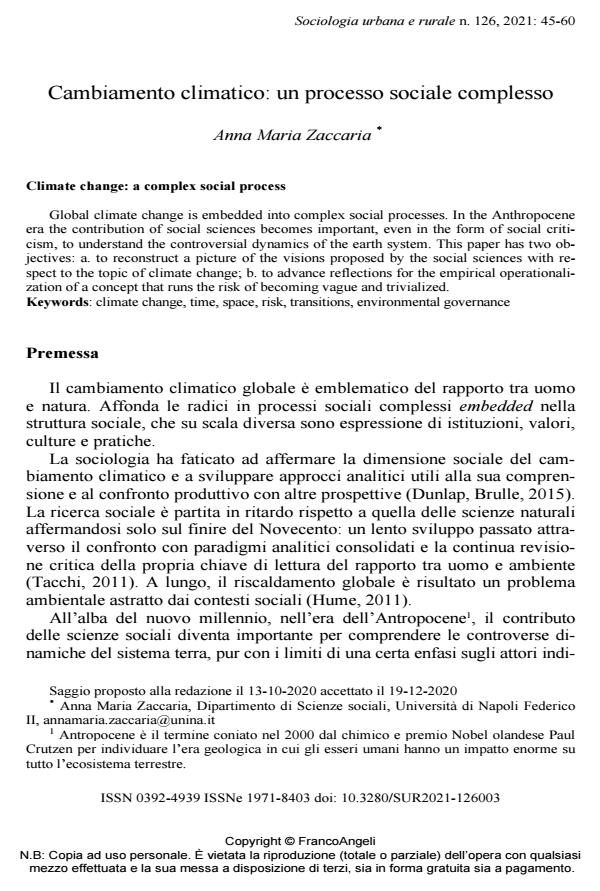Climate change: a complex social process
Journal title SOCIOLOGIA URBANA E RURALE
Author/s Anna Maria Zaccaria
Publishing Year 2022 Issue 2021/126
Language Italian Pages 16 P. 45-60 File size 193 KB
DOI 10.3280/SUR2021-126003
DOI is like a bar code for intellectual property: to have more infomation
click here
Below, you can see the article first page
If you want to buy this article in PDF format, you can do it, following the instructions to buy download credits

FrancoAngeli is member of Publishers International Linking Association, Inc (PILA), a not-for-profit association which run the CrossRef service enabling links to and from online scholarly content.
Global climate change is embedded into complex social processes. In the Anthropocene era the contribution of social sciences becomes important, even in the form of social criticism, to understand the controversial dynamics of the earth system. This paper has two objectives: a. to reconstruct a picture of the visions proposed by the social sciences with respect to the topic of climate change; b. to advance reflections for the empirical operationalization of a concept that runs the risk of becoming vague and trivialized.
Keywords: climate change, time, space, risk, transitions, environmental governance
- La discrasia dei voti verdi. Uno studio sulla variazione del sostegno ecologista tra Europa e Italia Barbara Sonzogni, Dario Germani, in SOCIOLOGIA E RICERCA SOCIALE 131/2023 pp.216
DOI: 10.3280/SR2023-131014
Anna Maria Zaccaria, Cambiamento climatico: un processo sociale complesso in "SOCIOLOGIA URBANA E RURALE" 126/2021, pp 45-60, DOI: 10.3280/SUR2021-126003